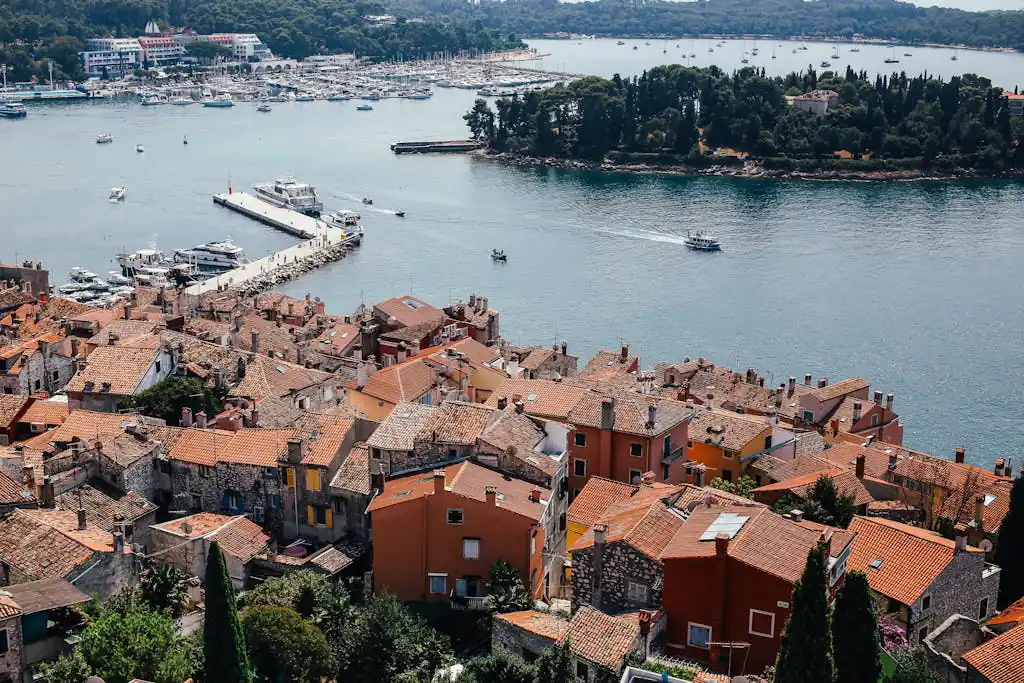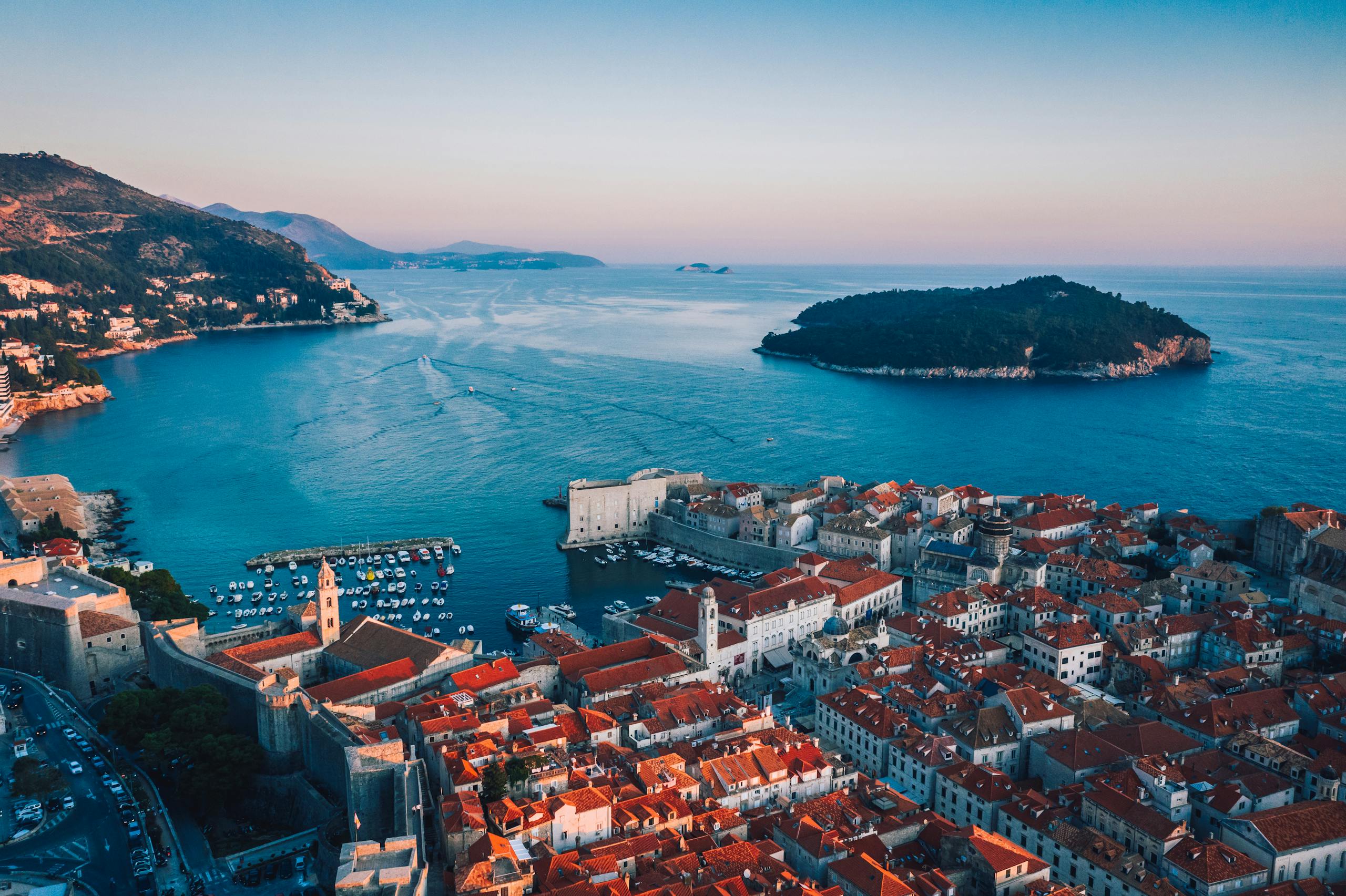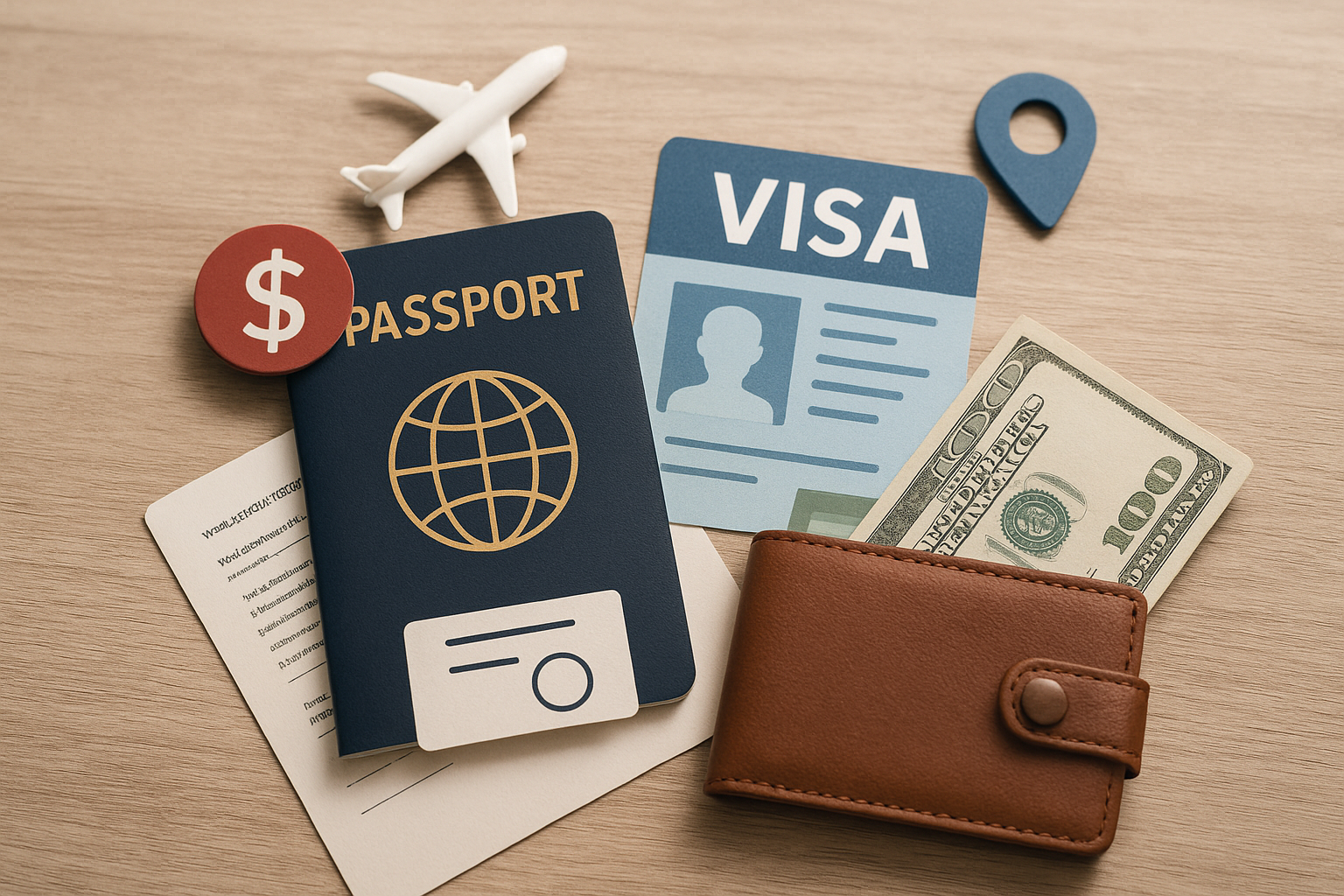Digital Nomad Visa in Croatia – Everything You Need to Know
The rise of remote work has created a new wave of professionals seeking adventure without sacrificing their careers. Croatia, with its stunning coastline, rich cultural history, and affordable living, has become a sought-after destination for digital nomads. The introduction of the digital nomad visa in Croatia has made it even easier for remote workers to settle in this beautiful country and experience the Mediterranean lifestyle while continuing to work remotely.
Why Croatia?
Croatia’s appeal extends far beyond its postcard-perfect landscapes. For digital nomads, it’s a destination that offers a unique blend of work-life balance. From its charming coastal towns to the vibrant urban life in cities like Zagreb and Split, Croatia provides a setting that caters to both productivity and relaxation. The country’s affordability compared to other European nations makes it particularly attractive. Whether you’re drawn to the Adriatic Sea’s sparkling waters, the historical allure of Dubrovnik, or the tech-savvy atmosphere of Zagreb, Croatia has something for everyone.
Additionally, Croatia is known for its safety and welcoming environment, making it an ideal location for solo travelers or families. The country has a relatively low crime rate, and its healthcare system is well-regarded, which adds a layer of security for those considering long-term stays.
What is the Digital Nomad Visa?
The digital nomad visa in Croatia was introduced in 2021, allowing non-EU citizens to reside in the country for up to one year while working remotely for companies or clients based outside of Croatia. This visa is a game-changer for remote workers who wish to explore Europe without the restrictions of short-term tourist visas. Unlike the standard tourist visa, which typically allows a stay of up to 90 days, the digital nomad visa provides an extended opportunity to live and work in Croatia without the need for a work permit or residency visa tied to local employment.
Types of Visas in Croatia
Before diving deeper into the specifics of the digital nomad visa in Croatia, it’s essential to understand the different types of visas that the country offers. Depending on your purpose of visit and nationality, you might qualify for various types of visas or permits:
- Short-Stay Visa (C Visa): This is a Schengen visa that allows you to stay in Croatia for up to 90 days within a 180-day period. It’s suitable for tourists, business trips, or short visits. Non-EU citizens often use this visa to travel within Croatia and other Schengen Area countries.
- Long-Stay Visa (D Visa): The D Visa is for individuals planning to stay in Croatia for more than 90 days but less than a year. It is typically granted for purposes such as study, family reunification, or work. However, it does not automatically grant the right to work in Croatia unless specified.
- Residence Permit: If you plan to stay in Croatia for more than a year, you will need to apply for a residence permit. This is commonly used by those moving to Croatia for work, study, or family reasons. The application process for a residence permit is more complex and requires specific documentation depending on the purpose of the stay.
- Digital Nomad Visa: The digital nomad visa in Croatia is a type of residence permit specifically designed for remote workers from outside the EU/EEA. It allows digital nomads to live in Croatia for up to one year while working remotely for companies or clients located outside of Croatia. This visa can be extended after the initial period, making it a flexible option for long-term digital nomads.
Eligibility Criteria for the Digital Nomad Visa
To qualify for the digital nomad visa in Croatia, applicants must meet specific criteria:
- Employment Status: Applicants must be employed by a company registered outside of Croatia or be self-employed and conduct their business remotely.
- Income Requirement: Proof of sufficient funds is necessary. Applicants need to show that they earn a minimum monthly income of HRK 17,822.50 (approximately €2,350 or $2,500) or have equivalent savings.
- Health Insurance: Comprehensive health insurance covering the duration of the stay in Croatia is mandatory.
- Accommodation: Applicants must provide proof of accommodation in Croatia, which can be a rental agreement, property ownership, or a statement from a host.
- No Criminal Record: A clean criminal background check is required.

How to Apply for the Digital Nomad Visa in Croatia
The application process for the digital nomad visa in Croatia is straightforward but requires careful attention to detail. Here’s a step-by-step guide to ensure a smooth application process:
Step 1: Gather Necessary Documents
Before starting your application, ensure you have all the required documents, including:
- A valid passport (with at least three months of validity beyond the intended stay).
- Proof of employment or self-employment status.
- Proof of income (bank statements, employment contracts, or financial statements).
- Health insurance coverage.
- Proof of accommodation.
- A clean criminal record certificate.
Step 2: Submit the Application
Applications can be submitted either online via the official Croatian Ministry of Interior website or in person at a Croatian embassy or consulate. For those already in Croatia, you can also submit your application directly at the local police station or administrative office.
Step 3: Pay the Application Fee
The application fee varies depending on where you submit your application. Typically, the fee is around HRK 420 (approximately €56 or $60). Ensure that you have proof of payment as this will be required during the submission process.
Step 4: Await Approval
Processing times can vary, but typically, you should receive a decision within a few weeks to a couple of months. It’s advisable to apply well in advance of your intended arrival date to avoid any delays.
Step 5: Arrival in Croatia
Once your application is approved, you will receive a visa or residence permit allowing you to stay in Croatia for up to one year. Upon arrival, you may need to register your address with the local authorities within a specified period.
Life in Croatia as a Digital Nomad
Once you’ve secured your digital nomad visa in Croatia, it’s time to settle into the Croatian lifestyle. Here’s what you can expect in terms of cost of living, cities to explore, and local attractions.
Cost of Living
Croatia offers an affordable cost of living compared to many Western European countries. Here’s a breakdown of typical expenses:
- Accommodation: Rent for a one-bedroom apartment in the city center can range from HRK 3,000 to 5,000 (€400-€700 or $450-$750) per month, depending on the location.
- Food: A meal at an inexpensive restaurant costs around HRK 50 (€7 or $8), while groceries for a week might set you back HRK 300-500 (€40-€65 or $45-$70).
- Transportation: Public transportation is efficient and affordable, with monthly passes costing around HRK 400 (€53 or $57).
- Healthcare: While health insurance is mandatory, the quality of healthcare in Croatia is high, and private health services are relatively affordable.
Top Cities and Attractions
Croatia is a country of contrasts, from its bustling cities to serene coastal villages. Here are some of the top places to consider when planning your stay:
- Zagreb: The capital city, Zagreb, is a hub for business, culture, and technology. It offers a vibrant urban lifestyle with co-working spaces, cafes, and excellent public transport. The city is also known for its historic architecture and lively art scene.
- Split: Located on the Dalmatian Coast, Split is famous for its stunning beaches and the ancient Diocletian’s Palace. The city combines history with a modern lifestyle, offering plenty of activities for digital nomads.
- Dubrovnik: Known as the “Pearl of the Adriatic,” Dubrovnik is a UNESCO World Heritage site with breathtaking medieval walls and a vibrant cultural scene. While it can be more expensive, the beauty of Dubrovnik makes it worth considering.
- Rovinj: A picturesque town on the Istrian Peninsula, Rovinj offers a quieter lifestyle with beautiful beaches, local markets, and a slower pace of life. It’s perfect for those looking to escape the hustle and bustle.
- Zadar: Another coastal gem, Zadar is known for its Roman and Venetian ruins, as well as the unique Sea Organ, an architectural sound art installation. It’s a budget-friendly option with a strong community vibe.
Why Choose Croatia?
Aside from its stunning landscapes and rich history, Croatia is a country that offers a high quality of life. The locals are known for their hospitality, and the country’s infrastructure is well-developed, making it easy for digital nomads to adapt and thrive. The internet connection is generally reliable, and there are plenty of co-working spaces across major cities.
Moreover, Croatia’s central location in Europe makes it an ideal base for exploring other countries. Whether you want to take a weekend trip to Italy, Austria, or Hungary, Croatia offers easy access to the rest of Europe.
The Future of Digital Nomadism in Croatia
Croatia’s digital nomad visa is part of a broader trend of countries recognizing the value of attracting remote workers. The success of this visa program could pave the way for further initiatives aimed at making the country even more accessible to digital nomads. There’s also potential for the development of digital nomad communities, co-living spaces, and more tailored services to cater to this growing demographic.
Making the Move to Croatia
If you’re considering applying for the digital nomad visa in Croatia, there’s no better time than now. With its perfect blend of affordability, natural beauty, and welcoming atmosphere, Croatia is poised to become one of the top destinations for digital nomads worldwide. Whether you’re looking for a bustling city experience or a tranquil coastal retreat, Croatia offers it all.
To start your application, visit the official Croatian Ministry of Interior website for the most up-to-date information on the digital nomad visa and the application process.
By embracing the opportunity to live and work in Croatia, you’re not just relocating—you’re embarking on a new adventure that could redefine your work-life balance and enrich your life in ways you never imagined.













